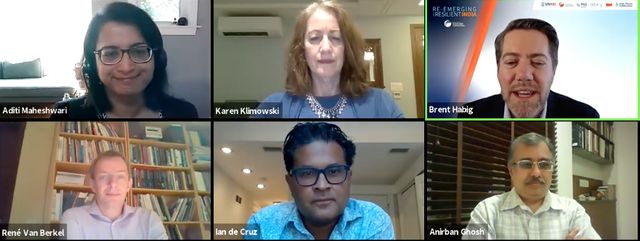Rashtriya Poshan Maah or National Nutrition Month 2020 as the anglicized would call it, is coming to a close next week. Nutrition has acquired more significance than ever, because of the COVID-19 pandemic. Apart from exercise and good sleep, a nutritious diet forms the third leg of the immunity tripod. Immunity, of course, is essential for resisting infectious diseases.
What is National Nutrition Month?
To bring home the message of good nutrition for health and well-being, the Government of India is celebrating the entire month of September as #PoshanMaah since 2018. Accordingly, National Nutrition Month 2020 is the third month-long intensive campaign.
What makes this year special is the vigour with which various ministries and state governments are making a concerted effort. For example, UP Chief Minister Yogi Adityanath launched a special campaign to end malnutrition in children. He has been supervising inter-departmental coordination. Also, he has directed district magistrates to draw up strategies. Moreover, Women and Child Welfare Minister Swati Singh is working alongside to root out malnutrition in the state of Uttar Pradesh.
Know your macros and micros
It’s a no-brainer that nutritious food is essential for leading a healthy, disease-free life. However, did you know there are two major distinctions in nutrients? Macronutrients are energy providers; micronutrients like vitamins and minerals make chemical reactions happen in your body. You need a balance of both nutrients to keep your body healthy.
What are macros?
Apart from water (which is also a macronutrient), macros are energy-providing nutrients. Your body needs energy for repairing tissues, developing muscles, to the steady beating of your heart.
1. Carbohydrates form the major component of macros. Each gram of carbs provides 4 calories of energy. Carbs are stored in the body in the form of sugar, starch and fibre.
2. Fats give about 9 calories of energy per gram, thus making them twice as rich in energy as proteins or carbs. They are essential for the body to be able to absorb fat-soluble vitamins (Vitamins A, D, E and K), as well as for making steroids and hormones.
3. Proteins provide amino acids. They constitute a major portion of the cell structure. A gram of protein provides 4 cals.
4. Water is the main component of body weight, as much as 70%. Additionally, water carries sand distributes nutrients across cells, rids the body of toxins and regulates body temperature.
What are micronutrients?
The body needs rather small amounts of these nutrients, hence their name. They don’t provide energy but rather serve the important function of enabling chemical reactions. Basically, without micronutrients, your body won’t function normally.
1. Vitamins are either fat-soluble (Vitamins A, D, E and K) or water-soluble (B-complex of vitamins and Vitamin C). Vitamins are required for good metabolism. They work in conjunction with bodily enzymes for growth. Citrus fruits are rich in Vitamin C. The B-complex vitamins are found in green leafy vegetables (spinach, broccoli, kale). Daily products and coloured vegetables, for example, are abundant in fat-soluble vitamins.
2. Minerals are important for keeping your bones healthy, your brain working properly and your heart beating. They are also essential for making hormones and enzymes.
Minerals are further divided up into macro-minerals and micro-minerals. Calcium, Potassium, Iron, Sodium and Magnesium are some of the macro-minerals the body requires in a relatively larger proportion. Copper, Zinc, Cobalt, Chromium and Fluoride are among the main trace minerals or micro-minerals.
Make sure your diet has a daily dose of both macros and micros in good enough proportions to meet your nutrient requirements.
This article is part of a series of articles on National Nutrition Month 2020


 Harsh Vaidya, Founder, TreeBox Initiative says, “It’s indeed a dream come true seeing so many like-minded Mumbaikars joining hands to make this city a greener place. I would like to thank every person who sponsored a tree towards making of Mega Man Made Forest and, most importantly, the local villagers and the tribal community who made this feat possible. We continue to pledge that in a decade, we look forward to growing 1 crore trees in and around Mumbai.”
Harsh Vaidya, Founder, TreeBox Initiative says, “It’s indeed a dream come true seeing so many like-minded Mumbaikars joining hands to make this city a greener place. I would like to thank every person who sponsored a tree towards making of Mega Man Made Forest and, most importantly, the local villagers and the tribal community who made this feat possible. We continue to pledge that in a decade, we look forward to growing 1 crore trees in and around Mumbai.”







